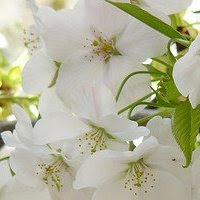Sports
Sports of all kinds enjoy great popularity in Japan. And, in its various martial arts, Japan has contributed several major sports to the world at large.
Traditional Sports
Among home-grown sports, none represents Japan’s national feeling as much as Sumo, a form of wrestling which originally was practiced during festivals and on holy days at Shinto shrines. Consisting of a single hard-packed dirt ring in which two-often enormous –men meet, a Sumo match is won when one wrestler forces the other from the ring or to the ground. Sumo involves intricate rules and an entire vocabulary of holds, thrusts and strategies that its devotees delight in debating.
Judo is a martial art of self defense which was born in Japan and now enjoys popularity among devotees internationally. Based on principles of leverage and using an opponent’s strength to one’s own advantage, Judo is now an Olympic medal event. The Kodokan training center in Tokyo is a good place to see Judo pupils training, as well as occasional exhibition bouts by experts.
Kendo is a form of fencing in which opponents clad in heavy cotton padding and lacquered armor assail one another with bamboo swords. The Nippon Budokan Hall in Tokyo is the best place to observe Kendo.
Karate, a form of weaponless combat , was developed by Okinawan peasants whom their mainland rulers forbade from carrying arms. Trained in the concentration of energy into blow of the hand or foot, a Karate expert can break through a thick stack of bricks or wood with a single stroke. Go to the Japan Karate Association in Tokyo to watch trainess and experts alike practice.
Aikido is another martial art based on concentrating one’s energy, as well as taking advantage of an opponent’ s strenght. Aikido is especially valued among its followers as a way of maintaining and increasing physical fitness. The Aikikai is an Aikido center in Tokyo.
Japanese archery, Kyudo, is considered bto be as much for individual spiritual refinement and the development of concentration as it is for competition. Long associated with he principles of Zen Buddhism, archery contests can sometimes be viewed temples.
Contemporary Sports
Baseball is so popular in Japan that many fans are surprised to hear that Americans also consider it their “national sport.”Especially popular are the national level spring and summer tournaments among senior high-school teams. Schools, champions representing their respective prefectures, gather at the Koshien Stadium in Hyogo prefecture and vie for victory. Almost everyone from aroound Japan becomes near fanatical in support of the teams from heir respective birthplaces. Professional baseball is well developed, with twelve teams being sponsored by major corporations. In Tokyo , the most favored place to see a game is the Tokyo Dome Stadium located in the grounds of Korakuen Amusement Park. Cheering for your favorite professional baseball team is a unique and powerful activity, using trumpets, drums and other noise-making instruments.
Soccer is a sport which is now a focus of explosive popularity among children and young people in Japan.
Skiing is a big in Japan, with millions of skiers flocking to the major resorts in the mountains of Honshu and Hokkaido. The nation’s ski resorts are very well developed, and compare favorably with the top regions of Europe, the U.S. and Canada.
Recently, the number of ski grounds that also cater to snowboarding is increasing as the sport gains in popularity especially among young people.
Skating is available indoor rinks in the major cities, as well as at excellent outdoor facilities in the wintertime in the north and Hokkaido.
Shopping
In a country that manufactures a large percentage of the entire world’s consumer goods, and that structures its entire national existence around the marketplace, it is no surprise that shopping takes up a goodly proportion of most visitors time. The Japanese themselves love shopping, and look upon a visit to the big departement stores in the major cities as recreation. The stores encourage this by offering child-care services, giving away free food samples in their grocery markets and delicatessens, holding art shows and demonstrating native and foreign crafts.








Interesting about sports and shopping :)